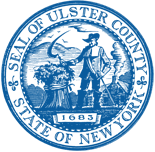Additional Revenues Will Help Fund Housing and Transit, as Proposed by the County Executive for the 2024 Budget
KINGSTON, NY - Last evening in a special session, the Ulster County Legislature approved a local law increasing the occupancy tax on hotels, motels, and short-term rentals from two percent to four percent, the last budget-related item included in County Executive Metzger's 2024 Executive Budget, which dedicates half of the new revenue from the increased tax to housing and public transportation. In 2022, the occupancy tax raised over $3 million, and the 2024 Ulster County Adopted Budget projects over $6 million in revenue from the increased tax. The Legislature first made a Home Rule Request to the State for an occupancy tax increase to four percent last June, in a resolution sponsored by Legislator Abe Uchitelle. This tax had not been raised since it was first instituted in 1991, and at two percent was far lower than neighboring counties, which have an occupancy tax rate of 5%.
The 2024 Adopted Budget will dedicate 25 percent of the revenue from the occupancy tax to fund the UCAT public transportation system and 25 percent to support the Housing Action Fund, with the remaining 50% supporting the County’s General Fund to lessen the burden on County taxpayers.
“We are long past due for a sensible tax rate that better aligns with our neighbors and keeps money in the pockets of our local taxpayers while providing revenue to tackle urgent priorities, like the housing crisis," said Ulster County Executive Jen Metzger. “Every dollar raised from this tax, largely paid by visitors to the County staying in hotels, motels, and short-term rentals, is one dollar less that comes out of the pockets of our local taxpayers. Ulster County residents are already feeling the pressure of high costs for housing, food, and other necessities, and it is common sense to ask people who can afford to vacation here to pay a few dollars more to support the housing and transit network for people who live and work in the community they are coming to enjoy. Those investments also greatly benefit our tourism industry, which is struggling to find enough workers because of a lack of affordable housing options.”
In an April op-ed penned by County Executive Metzger, she proposed to devote a quarter of annual revenue from the Legislature’s proposed occupancy tax increase to provide sustained support for the Housing Action Fund to address housing needs in Ulster County for the long term. The Legislature voted to approve the County Executive's Housing Action Fund initiative earlier this year, seeding the fund with an initial $15 million from the County's cash reserves. In the op-ed, Executive Metzger also proposed dedicating a portion of new occupancy tax revenue to the transportation budget to expand UCAT bus service. Under the County Executive’s proposal, the remaining 50 percent of revenues from an increased occupancy tax would be used to support tourism (10 percent) and general government services (40 percent), offsetting costs to property taxpayers.
In June, the State Legislature passed legislation in response to the County's Home Rule Request, permitting Ulster County to raise the occupancy tax to four percent. The bill, sponsored by State Senator Michelle Hinchey and Assembly Member Sarahana Shrestha, was signed by Governor Hochul in early December along with other similar local bills from across the state.
County Executive Metzger said, “I want to thank Senator Michelle Hinchey, Assemblymember Sarahana Shrestha, and Governor Hochul for supporting this sensible increase in Ulster County's occupancy tax, which remains lower than neighboring counties in the region."
The occupancy tax passed the legislature in an 11-10 vote, with much of the discussion centering around an amendment to how the tax is levied on all-inclusive hotels and resorts. The failed amendment would have negated the two percent increase at all-inclusive hotels by decreasing the portion of a customer’s bill subject to the tax from 40 percent to 20 percent. The amendment would have decreased projected occupancy tax revenues by approximately $500,000-$750,000, shifting that burden back to local taxpayers.
###

